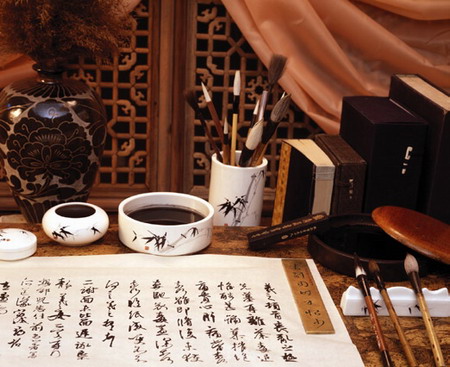A brief introduction to Mandarin: Cairns
Yirong Li (Teacher Li). Assistant Professor, Chinese language & Culture. In Cairns.
Mandarin is the official language of mainland China. Note: Mandarin is a Western term for Chinese language. The local term is Putonghua which literally means ‘standard language’. The majority of mainland Chinese people speak Mandarin or one of its sub-dialects. A minority speak Cantonese (mainly in the southeast). All Chinese students learn Mandarin in school.
Mandarin
______________________________________________________________
DIFFERENCES BETWEEN WESTERN & CHINESE LANGUAGES
Western languages: have alphabets and are phonetic. This means that we can always sound out a word that we don’t know in order to understand its meaning.
Chinese language ‘汉语’ is different: Mandarin is pictographic. This means that we can’t know the meaning of a word or character by sounding it out. Each character must be memorised: i.e., we either know it or we don’t. If you wanted to read a Chinese newspaper in Mandarin, you would need to be familiar with 4-5000 characters.
Pīnyīn: Although it would be helpful to know a few basic Chinese characters, it is not necessary to do so. The transcribing of characters into an alphabetical writing system called Pīnyīn has made learning Chinese much easier: e.g., when the characters for Chinese language ‘汉语’, are transcribed into Pinyin they become, ‘Hàn yŭ’.
SOME COMMON WORDS & PHRASES IN PINYIN
Here are some common English words and phrases which have been translated into Pīnyīn.
- Welcome Huān yíng
- Hello Nǐ Hǎo
- Yes Shì de
- No: Bù shì
- I Wǒ
- You (single & plural) Nǐ / Nǐmen
- Please Qǐng
- Thank you Xiè xiè
- You are welcome Bù kèqì
- Sorry Duì bù qǐ
- How are you? Nǐ hǎo ma?
- I’m fine, thank you Hěn hǎo, xiè xiè
- Come in please Qǐng jìn
- Can I help you? Wǒ néng bāng nǐ ma?
- What’s your name? Nǐ jiào shén me míng zì?
- My name is … Wǒ jiào…
- I’m pleased to meet you Jiàn dào nǐ hěn gāo xìng
- Wait a moment please Qǐng děng yī xià
- It doesn’t matter Méi guān xì
- Goodbye Zài jiàn
- Take care Xiǎo xīn
- Chopsticks Kuài zǐ
- Room number Fáng jiān hào
- How much? Duō shǎo qián?
- How many? Duō shǎo?
- Follow me please. Qǐng gēn wǒ lái
SOME TECHNICAL DETAILS
Four tones: Pīnyīn has four different tones. Each tone alters the sound of the word. This changes the meaning of the word.
Altering the sound: e.g.,
- high level tone: e.g., mā
- rising tone: e.g., má
- falling & rising tone: e.g., mǎ
- falling tone: e.g., mà
Changes the meaning of the word, ma: e.g.,
- mā means: mother
- má “ hemp
- mǎ “ horse
- mà “ scold
ma (no tone) at the end of a sentence, changes the sentence into a question.
Grammar: Unlike Japanese language, Chinese grammar is simple. The structure follows a basic subject-verb-object configuration. More complex rules can be learned as you go along.
Pronunciation: The pronunciation of Pīnyīn is a little more complex. Although the English alphabet is used to write Pīnyīn, some sounds and combinations of sounds vary from standard English pronunciation. Thus it may be necessary to devote a little time to mastering this skill. A qualified teacher of Mandarin could be a great help.
Yirong Li. Email: liyirongplum@gmail.com
_____________________________________________________________


